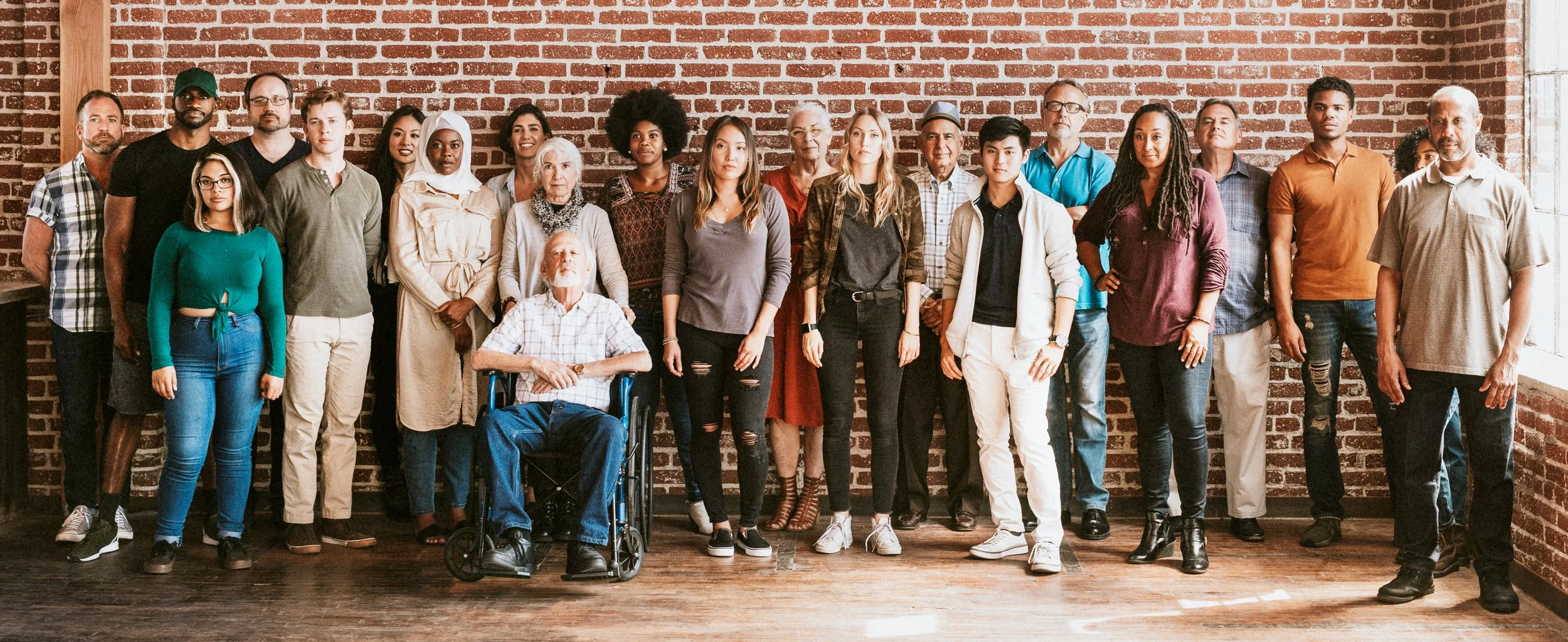TrustED Development Blogs
Guidance From Our Subject Matter Experts
Looking for a specific topic?
Tags
- Acceptance 1
- Accidental Project Managers 1
- Adversity 1
- Awareness 1
- Belonging 3
- Business Services 1
- Charity 2
- Coaching 2
- Community 1
- Compassion 1
- Conflict Management 1
- Continuous Learning 1
- Control 1
- Corporate Culture 3
- Customer Experience 3
- Customer Service 2
- DEIB 1
- Data-Driven Learning 1
- Diversity 4
- EQ 1
- Education 1
- Efficiency 1
- Emotional Disabilities 1
- Emotional Intelligence 2
- Emotional Support 1
- Emotions 1
- Empathy 4
- Empathy Training 1
- Enhanced Utilization 1
- Equity 3
- Facing Adversity 1
- Fatherhood 1
- Gap Report 1
- Growth 2
- Growth Opportunities 1
- Handling Change 1
- Healthcare 1
- Hiring 1
- Hiring Mistakes 1
- Human Centric 1
- Impactful Projects 1
- Inclulsion 2
- Inclusion 2
- Intellectual Disabilities 1
- Job Benchmarking 4
- Job Candidates 2
- Job Satisfaction 1
- Job Standards 2
- Knowledge 4
- LMS Reporting 2
National Disability Awareness Month
When I logged on to check my email the other day, in the midst of the spam and the action items, I found an uplifting email from Best Buddies International. Best Buddies is a charitable organization whose focus is on individuals with intellectual and developmental disabilities (IDD). The email was highlighting one of their program participants, her success in her job role, and the benefits of her employment both to her and the company. It was a heart-warming story and made me smile. While the heartwarming stories are important, it’s the last part of that sentence I want to highlight: the benefit to the company.
International Day of Charity
September 5th is recognized as International Day of Charity. According to the United Nations Website, The International Day of Charity was established with the objective of sensitizing and mobilizing people, NGOs, and stakeholders all around the world to help others through volunteer and philanthropic activities. The 5 of September was chosen in order to commemorate the anniversary of the passing away of Mother Teresa of Calcutta, who received the Nobel Peace Prize in 1979 "for work undertaken in the struggle to overcome poverty and distress, which also constitute a threat to peace.
Unlocking the Power of Efficient and Impactful Projects
If you’re a manager, business owner, or leader, you want your team to run like a well-oiled machine. You expect efficiency, effectiveness, and the ability to deliver results. However, what happens when you realize that some of your team members are now tasked with managing projects – despite having no formal training?
Leadership…A View from Behind the Curtain
What do you think of when you hear the word “leader” or “leadership”? For most people, we probably think of people like the president, the CEO of a company, or our supervisor. Maybe an outspoken celebrity comes to mind or someone who is innovative and breaking strides in a certain field.
People who aren’t afraid to stand on the stage front and center, those who take charge, and call the shots. Sure, we want our leaders to be people we look up to, people who lead the way, people to get out there and show us how it’s done!
Celebrating Fatherhood
If your dad is from the Baby Boomer generation, chances are when it comes to Emotional Intelligence (EQ), he can read people well, but typically kept his emotions in check. Gen X dads and millennials may be a little more open to showing emotions from time to time. There have been many articles written and studies done on how the different generations navigate EQ and who does it “better”. The same can be said for the topics of empathy, stress and resiliency, and leadership. But, just for a moment, let’s look at the different ways our dads taught us these things.
The Importance of Empathy Training for Your Healthcare Workforce
When healthcare workers are trained in empathy skills, they are better equipped to understand their patients’ feelings and experiences. This helps the practitioner understand how best to approach treatment for the patient. Not only does this enable them to provide more personalized care, but it also helps them deliver successful outcomes more quickly and efficiently. For example, if a patient is feeling overwhelmed or scared by their diagnosis or treatment plan, being able to empathize with that feeling can help the practitioner develop a plan that considers both physical and emotional needs for optimal results.
How Empathy Training Can Benefit Manufacturing Workforces
Empathy training in the workplace helps create positive relationships among team members. By learning empathy skills, employees can better understand the emotions of their coworkers, leading to improved collaboration and communication between departments. This type of training encourages active listening, which allows employees to make sure they fully comprehend what their colleagues are saying before responding. Active listening also creates a sense of trust among team members by showing them that they are being heard and respected. Additionally, this type of listening reduces misunderstandings that might otherwise lead to negative interactions or conflicts in the workplace.
Empathy: The Key to Great Customer Experiences
Empathy is an essential skill for success in any industry. It allows business leaders to understand the needs and wants of their customers from a different perspective. Empathy also helps create stronger relationships with customers and builds trust between them and the company. Furthermore, it can help resolve conflicts quickly and efficiently by providing a better understanding of both sides. Finally, empathy can help transform a customer's experience into unforgettable moments that will make them want to come back again and again.
What are the Most Common Hiring Mistakes?
From not preparing job benchmarks to ignoring a candidate’s personality, hiring mistakes can be a major setback to the growth of any organization.
It’s disheartening to put so much time and effort into new hires only to find out they aren’t a good fit or aren’t who they portrayed themselves to be. Plus, a bad hire can be quite expensive.
Finding the Perfect Candidate
Job benchmarking, simplified, is a three-step process. We start by gathering Subject Matter Experts and through facilitated discussion Key Accountabilities of the specific job role are determined. What competencies or soft skills are most important to the job role? Does the job role include interacting with customers? Then Customer Focus will be a prioritized skill. What kind of Driving Forces or passions do employees need for this role? Is someone with a love for continuous learning important to this role? This is measurable information. What about DISC style or behaviors? Does the job require someone who likes to be the leader/decision maker or does it need someone who prefers a more collaborative position? Once these Key Accountabilities have been determined, the SMEs take an assessment, which then is used to build the benchmark or the standard by which a candidate is measured.
14 Day Emotional Intelligence (EQ) Workout
Emotional Intelligence (EQ) is all about helping you notice your emotional energy and making choices to react to what is happening to you in a way that fosters long term personal growth. This is a muscle we can exercise and strengthen with a little work. People have an average of 80 experience each year that, if they noticed and acknowledge them, are personal growth opportunities. Most people only identify and act on 3 of those. Many times people may avoid the negative emotions or pretend everything is ok.
Providing Your Organizations with a Learning Management Platform
Continuous learning is an essential aspect of employee growth and business success. The world is changing fast, and new technologies are frequently being introduced. Knowledge and skills become outdated quickly, and this is where a Learning Management System (LMS) comes into play. An LMS offers organizations the opportunity to provide their employees with the resources to develop their skills.
Empathy in the Workplace
A first responder is not an orthopedic surgeon or a rehabilitative specialist or even an ambulance driver. My classmate needed all of those people (and more). A first responder has the skills necessary to stabilize a person to their next level of care.
In the social and emotional realm, this is what I want to create through my interactive, human-centric trainings on empathy: workplace first responders.
Sometimes at work, an employee needs a lot of intervention: counseling, medication, ongoing levels of focused care. A workplace first responder should not be a counselor or a pastor or an imam: this gets a person into uncertain legal waters at work.
But other times, an employee needs basic, stabilizing care.
Focusing on Emotional Intelligence: How Organizations Can Benefit
You have probably heard the term “emotional intelligence” (also known as EQ), but wondered what exactly does it mean? You may have also wondered why you should care about it, particularly in the workplace where we should be controlling our emotions and acting in a professional, rational manner. It turns out that, whether we realize it or not, many of us are already familiar with the concept of EQ, and there are multiple reasons why we should care about it, especially in the workplace.
Neurodiversity
Being neurodivergent means that your brain functions a little differently than someone with a neurotypical brain. This can mean anything from conditions like ADHD, cognitive delays, autism, dyslexia, or many other variations of the human brain.
Leadership
Whether you are just starting on your journey to leadership, halfway there, or a seasoned leader, there is always something new to learn. It’s about having the right people around you, overcoming your challenges, knowing your strengths, and growing in ways you may have never thought possible. Enjoy the journey and discover the “places you’ll go!”
We’re “Growing” Places!
Sometimes growth happens naturally and unexpectedly. Life lessons, mistakes we’ve made, teachable moments, or just being forced to expand even if we may have resisted. But what if we chose to focus on learning and growing and we’re intentional about it? What if we were determined that this is the year we are going to make learning a priority? How much more could we grow? How much could we share with others? We tell ourselves that learning a new skill, becoming more self-aware, or taking that training can wait. Afterall, we are busy people who must set priorities. What if in this coming year we put learning first? We may see that other things in our lives just fall into place.
Diversity, Equity, Inclusion & Belonging Training: Unlocking the Potential of Your Organization
Diversity, Equity, Inclusion & Belonging (DEIB) has become a significant topic in the workplace. While it may seem like another buzzword, it is essential to recognize its importance for a successful workplace culture.
Coaching
When it comes to professional coaching, the impact is no different. It can save careers, boost careers, make us leaders, and transform us into great leaders. Having the right coach makes all the difference. It’s a partnership that empowers individuals to unlock their full potential and achieve their professional goals, while impacting them personally. In the ever-evolving landscape of the professional world, coaching serves as a valuable compass, providing guidance and support to navigate challenges and capitalize on opportunities. A good coach can help you realize your strengths, face your challenges and conquer them, increase your self-awareness, grow your emotional intelligence, and so much more.
How to Use Job Benchmarking in the Hiring Process
Job benchmarking is the process of evaluating and comparing jobs within an organization—including roles, responsibilities, qualifications, skillsets, duties, etc.—to determine appropriate salaries and benefits for each position. This process helps to ensure that employees are compensated fairly based on their level of experience and responsibilities. In addition to providing competitive salaries, job benchmarking also helps organizations avoid underpaying employees due to outdated compensation structures or misalignment in departmental budgets.





















